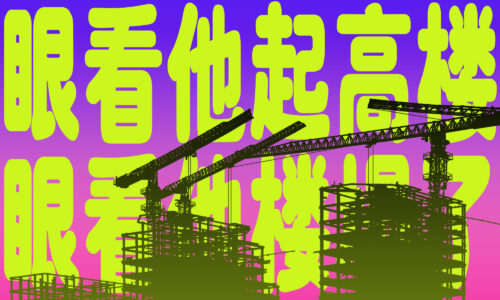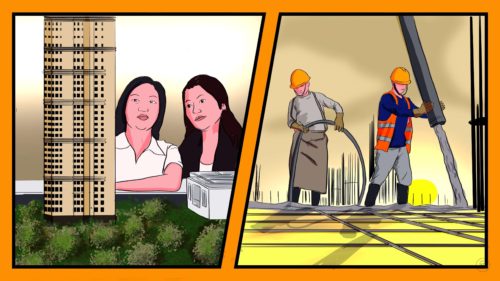China’s government offers some help to the battered real estate sector, which is in desperate need of reform
Beijing has signaled regulatory easing on its ailing property sector, but the policy shift will neither reverse the industry-wide downturns that began in 2021 nor resolve property developers’ deep rooted issues underpinning the series of defaults.

On April 29, Xí Jìnpíng 习近平 led a meeting of China’s top leadership body, the Politburo, that signaled a policy shift towards its battered property sector, encouraging local governments to “optimize real estate policies based on local realities.” In other words, local governments may begin to offer more support for property developers. However, it is not clear if regulatory easing will be palliative or curative for the property sector’s ailments, which include years of unsustainable growth strategies based on speculative funding and debt.
Growth in China’s real estate market continues to decline after the 2021 downturns during which the largest Chinese property developer, China Evergrande Group, defaulted on billions of debt. Other industry leaders that faced a similar fate and suffered credit rating downgrades include Fantasia Holdings 花样年, Kaisa Group 佳兆业集团, Shimao Group 世茂集团, and Sunac China Holdings 融创中国控股.
What’s behind the slump?
Much to the surprise of many investors, the sector’s market sales began to slump in March of last year after decades of rapid growth.
According to data from China Real Estate Information Corp., China’s top 100 property developers experienced a 53% decline in sales in March 2021 and year-on-year changes in sales are still declining into May of this year.
Since 2021, Chinese developers have defaulted on $8 billion in offshore dollar bonds and $757 million in onshore yuan-denominated bonds. New home prices in 70 Chinese cities declined slightly at 0.13% from January to February of this year. Property investment grew 4.4% in 2021, which is the slowest pace in 17 months.
This is all new for real estate companies and for the Chinese economy as a whole. Since the economic liberalization policies in the 1980s, the real estate sector has been viewed as a key driver of economic growth and social stability, and it continues to play an outsized role for Beijing’s economic ambitions: It is a significant contributor to GDP and employment rates, and a recipient of investment.
However, more recently, Beijing’s views towards property developers pivoted from favor to caution. A major reason is the industry-wide debt problem. In fact, some observers believe the property market is a looming financial bubble hidden behind years of distortive state intervention and lenient loans.
In August 2020, the Chinese government preemptively addressed such concerns and implemented its “three red lines” policy, which systematically assesses a developer’s ability to receive refinancing against three metrics. This policy was intended to prevent unhealthy debt-ridden firms from using more debt refinancing and forestall a prodigious market crash.
Can the government actually fix the problem?
Regulatory easing will not resolve the structural roots of the Chinese real estate sector’s problems. The issues that are now plaguing the sector have been long in the making, and include property developers’ complacency towards high leverage, as well as their failure to deliver promised housing and thus, a loss of investor confidence.
The government may well even exacerbate the problem as the sector is in need of wholesale reform with incentives to deleverage. The state’s moves to assuage the industry’s pains is but an aspirin tablet prescribed to cure cancer.





